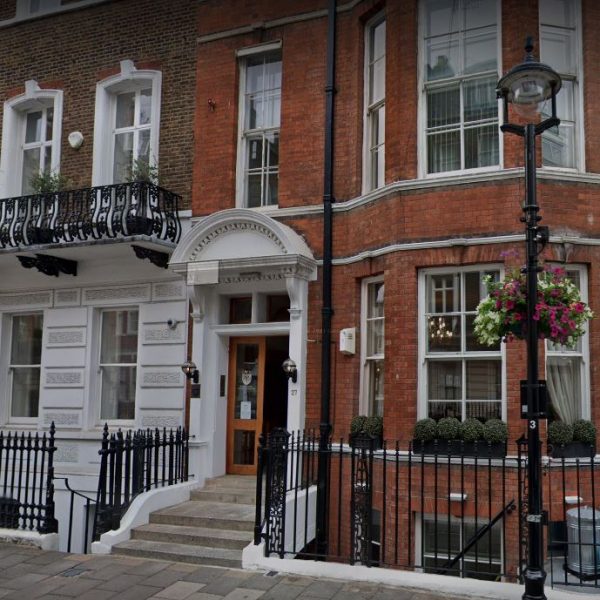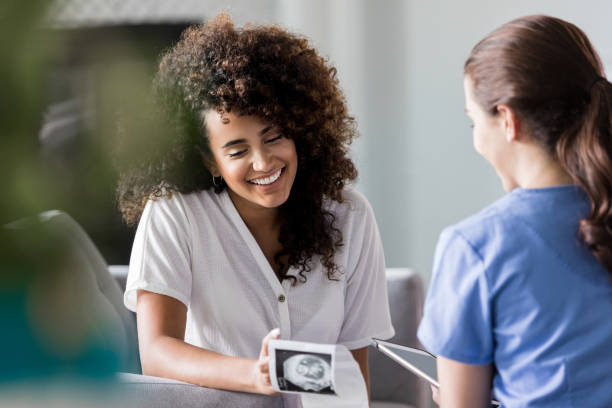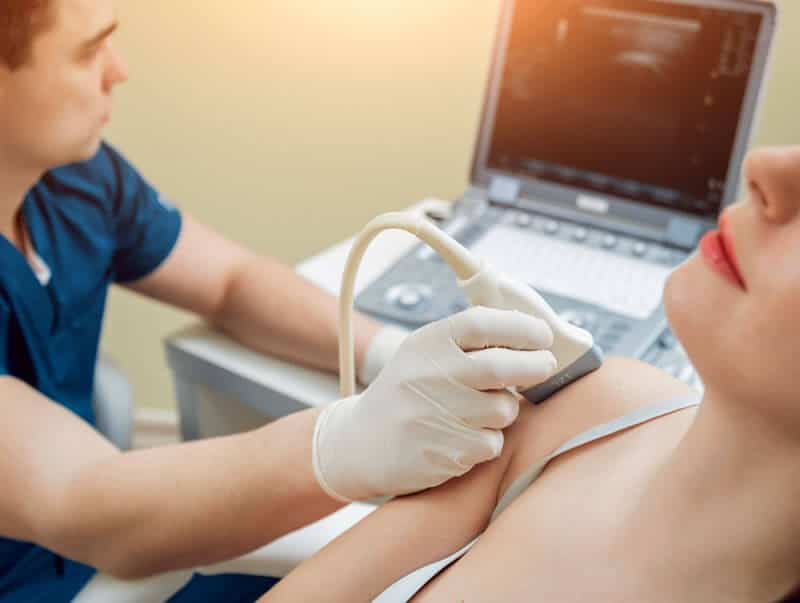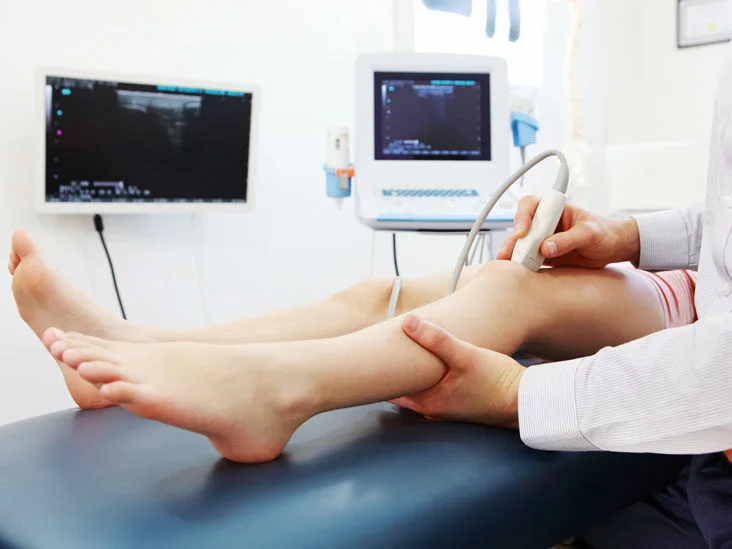Ectopic Pregnancy
£197
During the process of conception of pregnancy, the egg, and sperm meet just outside the fallopian tubes of the uterus. Fallopian tubes are narrow thin tubes that guide the sperms towards the ovaries, where the ovulated free egg is awaiting fertilization. Once fertilization happens, the small bundle of newly formed conception cells (blastocyte) starts multiplying and growing. In the meantime, it starts to travel back towards the cavity of the uterus via the fallopian tubes. This migration usually takes around 5-6 days, and the embryo implants itself within the lining of the uterus (endometrium). This is the natural and correct place for the pregnancy to be as the muscle of the womb can stretch and carry the baby for 9 months.
Book Your Appointment
During the process of conception of pregnancy, the egg, and sperm meet just outside the fallopian tubes of the uterus. Fallopian tubes are narrow thin tubes that guide the sperms towards the ovaries, where the ovulated free egg is awaiting fertilization. Once fertilization happens, the small bundle of newly formed conception cells (blastocyte) starts multiplying and growing. In the meantime, it starts to travel back towards the cavity of the uterus via the fallopian tubes. This migration usually takes around 5-6 days, and the embryo implants itself within the lining of the uterus (endometrium). This is the natural and correct place for the pregnancy to be as the muscle of the womb can stretch and carry the baby for 9 months.
Sometimes this process is interrupted by either previous pelvic infections, local adhesions, variants in female anatomy, or any other reason and the conception implants itself into any nearby structure, such as the ovary, pelvic floor, bowel, and fallopian tube and therefore pregnancy is ectopically placed outside the womb lining. Ectopic pregnancy cannot carry on as none of the mentioned sites are designed to carry a pregnancy.
The following symptoms could mean that your fallopian tube has split open (ruptured).
1. A sharp, sudden, and intense pain in your tummy
2. Feeling very dizzy or fainting
3. Feeling sick
4. Looking very pale
This is very serious and surgery to repair the fallopian tube needs to be carried out as soon as possible. Ectopic pregnancy can become a life-threatening situation for the pregnant mother.
A rupture can be life-threatening, but fortunately, they’re uncommon and treatable, if dealt with quickly. Deaths from ruptures are infrequent in the UK.
Since the pregnancy is not inside the womb, the lining of the womb which had thickened to house the pregnancy can start to shed and bleeding can be experienced by the pregnant mother. This could be the first sign of an ectopic pregnancy as well as pain on the affected side. Some patients might be feeling faint and unwell, have headaches, one-sided pelvic pain, general abdominal pain, or have any unusual symptoms. Symptoms can include a combination of:
1. A missed period and other signs of pregnancy
2. Tummy pain low down on 1 side
3. Vaginal bleeding or a brown watery discharge
4. Pain in the tip of your shoulder
5. Discomfort when peeing or pooing
A positive BHCG pregnancy blood test confirms that you are pregnant, but it cannot tell us where it is implanted and growing. An early Pelvic transabdominal and transvaginal ultrasound scan (Ectopic pregnancy) can determine the site of pregnancy and rule out the possibility of an ectopic. However, if the gestation is too early, neither ectopic nor intrauterine pregnancy can be seen. In these cases, serial βHCG hormone check-ups (Blood test) and serial Ectopic pregnancy (Pelvic) ultrasound scans a few days apart are necessary to check the progress of the pregnancy.
Very rarely twin pregnancy can have two sites with one inside the womb and one ectopically placed. Even though this is very unlikely to happen, the only way to find out is by ultrasound scan.
In London private ultrasound, we perform Transabdominal and Transvaginal ultrasound scans (Ectopic Pregnancy) as early as the end of the 5th to 6th weeks of the pregnancy to confirm the accurate progression of pregnancy, and this will put your mind at rest. βHCG blood test also can be performed on-site. Repeat transvaginal Pelvic ultrasound scans, (Ectopic pregnancy ultrasound scans), blood tests,and follow-up scans can be arranged to follow the active process of pregnancy if the gestation is too early or the results are borderline, dubious, or inconclusive.
How early can I have a scan for ectopic pregnancy?
What happens if I have an ectopic pregnancy on transvaginal pelvic ultrasound?
What will happen in the hospital?
What if the ectopic cannot be seen or is inconclusive on the scan?
What signs should I be looking for?
Who is likely to have ectopic pregnancy?
How soon can I have the results?
How long will the scan take?
How an ectopic pregnancy treated?
There are 3 main treatments for ectopic pregnancy:
- Expectant management – you're carefully monitored and 1 of the treatments below is used if the fertilised egg doesn't dissolve by itself
- Medication – an injection of a powerful medicine is used to stop the pregnancy growing
- Surgery – keyhole surgery (laparoscopy) is performed under general anaesthetic to remove the fertilised egg, usually along with the affected fallopian tube.
How long does it take to recover after ectopic pregnancy?
What are the chances of a normal pregnancy after an ectopic?
Can you have a successful pregnancy after an ectopic pregnancy?
Is it harder to get pregnant after ectopic?
Can you give birth naturally after ectopic pregnancy?
What happens when a fallopian tube is removed?
Can you still have a baby without fallopian tubes?
Private Ultrasound Clinic
All part of our services, from our specialists to our technology and, of course, our clinic, is designed to deliver the greatest possible experience for all of our patients and visitors.
We are conveniently located a stone throw famous Harley Street of London and our clinic is a place where you may feel safe and clean, comfortable, and reassuring environment.
Central London Branch: 27 Welbeck Street, London, W1G 8EN
St Albans Branch : 54-56 Victoria St, St Albans, AL1 3HZ
Tel: 020 7101 3377




